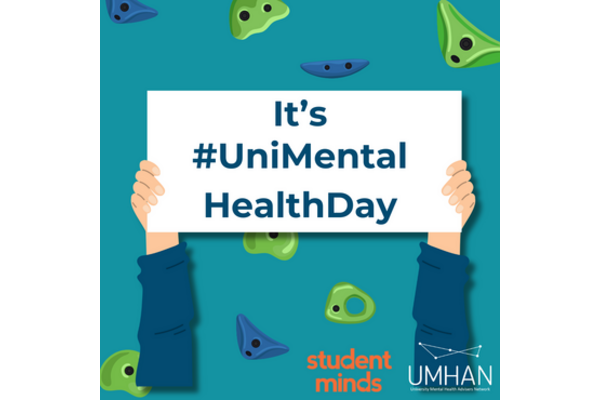A recent article by the Guardian has reported a high increase in the number of students dropping out of university due to mental health difficulties. UMHAN appreciates the attention this important issue has gathered, not least because of the consequences for people with health conditions or disabilities of dropping-out in terms of their esteem, recovery and long-term prospects, but also as an opportunity for a range of stakeholders to become aware of the complexity of the issue.
What does this increase show?
This increase is likely to reflect a combination of issues, not least the fact that mental health difficulties are the leading cause of disability amongst young people. The declaration rates by people with mental health difficulties going into Higher Education have increased: in 2007-8, 0.4% of students disclosed a mental health difficulty (Equality Challenge Unit, 2014), whereas by 2014-15 this was 1.56% (Equality Challenge Unit, 2016). While still low, this suggests a positive increase in willingness to disclose and a more accessible application process; however, students who require more support are at higher risk of dropping out should this support fail to be provided.
Also, the age of 80% of people in Higher Education matches the age range at which serious mental health problems develop (HEPI Report 88), so personal and practical barriers to completing education arise and will also be a factor. For students who will move between different healthcare Trusts, the provision of healthcare can become complicated and difficult to access at the time they may need it. For example, moving from Child and Adolescent Mental Health Services to Adult Mental Health Services, changing GP practice and often moving away from social support may all mean that problems that can occur during transition into and out of Higher Education are not supported.
Mental health promotes academic achievement, and inclusion in socially-meaningful education promotes mental health. Higher stress levels have been reported among students than their non-student peers (HEPI:HEA 2016), and young people’s' general resilience is tested while undertaking a course of education; students who struggle personally or academically have an increased risk of developing a mental health difficulty. Increases in fees may also mean that, for anyone affected by a disability or mental health problem, financial costs become a greater concern to the extent that, from a cost-benefit perspective, education is viewed as less of a benefit to the person at that point in life.
University counselling services and mental health advisers have faced a 50% increase in students accessing their services, the Guardian found. Mental health difficulties, whether previously-diagnosed or newly-developed, can prevent students from unlocking their potential. Likewise, Higher Education itself may be structured in ways which present barriers for people experiencing mental health difficulties. UMHAN's view is that any approach that wishes to address drop-out rates should address both the personal and structural barriers to education. We can learn from those who have experienced these as well as those supporting them.
The role of Mental Health Advisers
Mental Health Advisers work with students to help them manage their mental health and demonstrate their potential academically. They are often facilitating the transition of support for students with mental health difficulties, while guiding and advising students who have newly-developed mental health difficulties regarding diagnosis, potential treatment within the NHS, and with social support. Crucially, mental health advisers are also helping Higher Education providers consider how they may successfully retain students by addressing practical barriers. This key role can be the difference between a student dropping out or growing, graduating and fulfilling their potential.
The work of a Mental Health Adviser in HE therefore aims to make a positive contribution to the life chances and opportunities of those who have experienced mental health difficulties. As the representative body of people in these roles, UMHAN welcomes the opportunity to work with other organisations and stakeholders across the sector to address drop-out rates.









